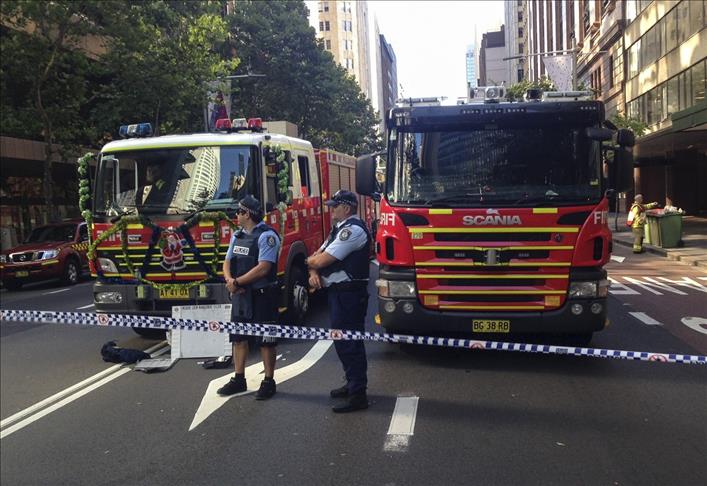
By Jill Fraser
MELBOURNE, Australia
In the wake of the deadly Sydney café siege that shocked Australia, a leading terrorism expert has warned the world to expect further “lone wolf” terror attacks.
Three people, including the gunman, were killed as the 17-hour siege came to an end on Monday.
Various reports have described the suspect, Man Haron Monis, as a criminal and an extremist. The display of a black Islamic flag during the siege sparked fears of his links to jihadist groups, although no such direct association has since emerged.
Commenting on the attack, Professor Greg Barton, international director of the Global Terrorism Research Centre and director of the Centre for Islam and the Modern World, told The Anadolu Agency: “The worry is that we will see a wave of attacks.”
Following the deaths at the Lindt Chocolate Café, Australian commentators have been debating whether Monis had been inspired by ideology or if he was just a disturbed individual acting without a particular agenda.
Monis’ former lawyer Manny Conditsis referred to him as “damaged goods.” Speaking to ABC News, he said: "It was not a concerted terrorism event or act.”
Others have described Monis’ motives as those of an “egotistical” individual “desperate for attention.”
However, Barton argued that Monis fits the profile of a lone wolf terrorist.
In an opinion piece in News Limited, he wrote: “It is easy to dismiss Man Haron Monis as simply mad and bad, damaged and dangerous… All of that is true but there is more that is also true.
“At first, Monis looks like an outlier not fitting into the profile of a ‘proper terrorist.’ But when we understand that Islamic State is reaching out to damaged, troubled, vulnerable men, the sinister efficacy of its message is seen more clearly.”
Speaking to AA, Barton accepted the difficulty in defining terrorism but said the key elements were the “use of intimidation or threat of violence to advance a political cause and a media response that leverages the impact of what they’re doing, which is to deliberately provoke outrage and horrify and terrify people.”
He added: “As long as the black banner of Islamic State appears in videos circulating the world, then the most pointless act of terror has meaning and the most banal terrorist finds purpose.”
Barton, based at Monash University in Melbourne, believes Monis was acting in the name of his political cause – the Islamic State in Iraq and the Levant, known as ISIL.
He said: “We were dealing with a man who had a long history of expressing strong political views, specifically extremist Islamic ones. Monis recently became a Sunni Muslim. He swore allegiance to the Islamic State and its leader, Abu Bakr al-Baghdadi, a couple of months ago.”
Although all countries opposing ISIL and other extremist groups are at risk of attack, Barton warned Turkey to be especially vigilant because of its proximity to Syria.
“Over the past two months we’ve heard calls for action from ISIS [ISIL] asking supporters to strike where they can,” he said.
Now that Turkey was “showing signs of aligning with the international coalition against the Islamic State,” Barton asked: “What will be the response?”
Predicting that others would copy Monis’ tactics, he added: “The question is no longer when, but how many?”
Anadolu Agency website contains only a portion of the news stories offered to subscribers in the AA News Broadcasting System (HAS), and in summarized form. Please contact us for subscription options.

